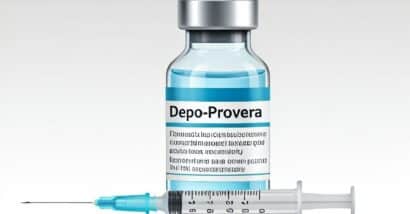 A juror from the District of Columbia says Chase is illegally taking a cut of jury duty service payments that are distributed via Chase debit cards.
A juror from the District of Columbia says Chase is illegally taking a cut of jury duty service payments that are distributed via Chase debit cards.
Plaintiff Ronald Morin takes issue with the way defendant JPMorgan Chase & Co. distributes the service payments that persons called for jury duty are entitled to receive.
Chase distributes these payments in the form of pre-loaded debit cards. Morin says this system illegally burdens jurors with fees both for using the card and for not using it.
By law, all U.S. jurisdictions provide service payments to persons who serve on juries. These payments are intended both to cover the juror’s expenses related to that service and to reimburse them for lost income that results from having to spend time away from work.
In the District of Columbia, where Morin lives, jurors are entitled to $4 per day to cover travel costs and a $30 per day stipend for each day of a trial, unless they are full-time government or private employees who continue to make their normal salary during their jury service.
Historically, Morin says, these payments were issued by check. But in recent years, various states’ court systems have contracted with Chase to distribute juror service payments via Chase debit cards. These cards have been the exclusive way for D.C. jurors to receive their service payments since 2011, Morin says.
Depending on how jurors want to use their debit cards, Chase subjects them to any of a number of fees that can be large enough to take a significant bite out of their compensation, according to the class action.
Morin says that to receive the card’s balance in check form, Chase charges an issuance fee of $15. Cashing out the card incurs a $7 fee.
Morin points out these fees are large enough to wipe out many prospective jurors’ entire service payment. Persons summoned to jury duty for a single day but not selected for further duty receive only a $4 travel reimbursement, an amount small enough to be swallowed up by Chase’s cash-out and check issuance fees.
Chase would allow jurors to cash out their Chase debit cards free of charge at an in-network ATM. But according to Morin, there is no Chase ATM within D.C., and Chase does not identify any in-network ATMs within the District. Jurors therefore must use an out-of-network ATM, incurring a $2 charge from Chase on top of any ATM service charge.
Morin argues the use of these Chase debit cards to pay jurors violates the federal Electronic Fund Transfer Act and the D.C. Consumer Protection Procedures Act. He also raises claims for unjust enrichment and conversion.
Other charges include a $0.25 charge for declined transactions, a $0.45 charge for checking the card’s balance, and a $1.50 inactivity charge for every month the card is inactive beyond its first 90 days, according to Morin.
Morin proposes to represent a Class consisting of all persons in the U.S. who were compensated for jury service with a Chase debit card. Alternatively, he seeks to represent all such Class Members who reside in Washington, D.C.
He is asking the court for restitution of the fees that he and the Class paid for use or non-use of these Chase debit cards. He also seeks an award of damages, litigation expenses and attorneys’ fees, plus any other relief the court sees fit to grant.
Morin is represented by attorneys Donald J. Enright, Rosemary M. Rivas and Quentin A. Roberts of Levi & Korsinsky LLP.
The Chase Juror Service Payment Class Action Lawsuit is Ronald Morin v. JPMorgan Chase & Co., Case No. 1:17-cv-00387, in the U.S. District Court for the District of Columbia.
ATTORNEY ADVERTISING
Top Class Actions is a Proud Member of the American Bar Association
LEGAL INFORMATION IS NOT LEGAL ADVICE
Top Class Actions Legal Statement
©2008 – 2026 Top Class Actions® LLC
Various Trademarks held by their respective owners
This website is not intended for viewing or usage by European Union citizens.














